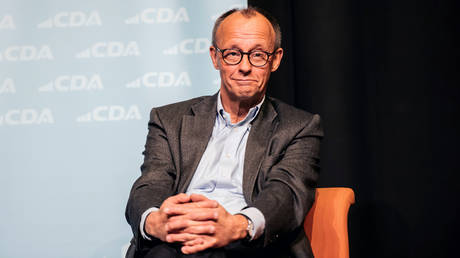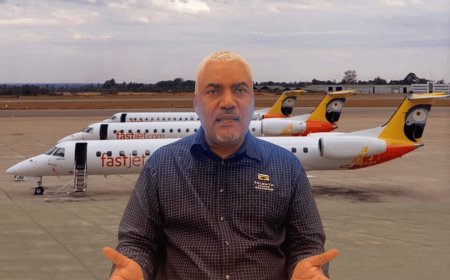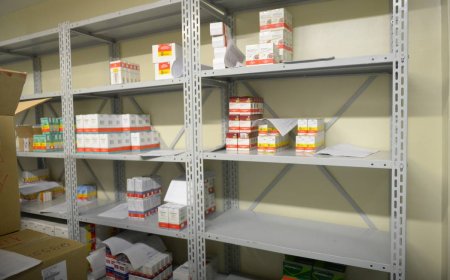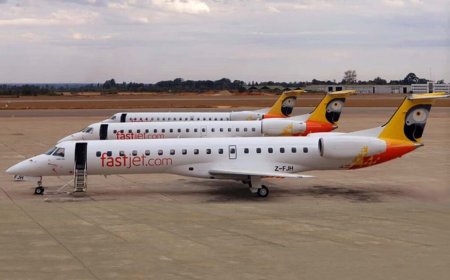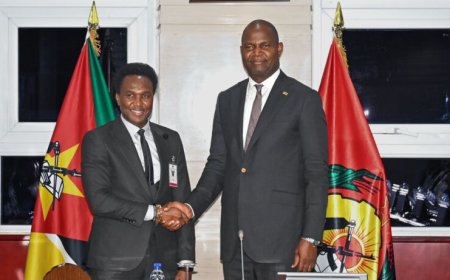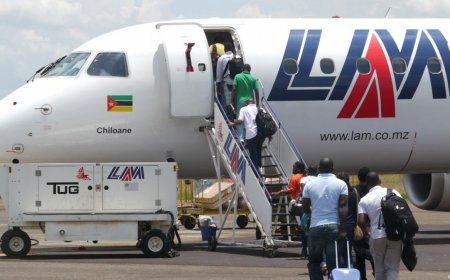Venâncio Mondlane: Between withdrawal and a solitary fight in the presidential race
Following the confirmation of the rejection of the Democratic Alliance Coalition (CAD) candidacy due to an alleged plot between Frelimo and Renamo, the question arises: Will Venâncio Mondlane, with or without CAD, proceed with the presidential bid?
According to the National Election Commission (CNE), CAD was rejected by consensus among CNE members due to alleged irregularities in its registration process. However, Venâncio Mondlane's candidacy is approved to run in the October 9 presidential elections.
“The problem is with the CAD coalition, not with Venâncio. Citizen Venâncio Mondlane’s candidacy for President of the Republic is duly approved by the Constitutional Council,” stated Paulo Cunica, CNE spokesperson.
With the rejection of CAD, the coalition can only appeal to the Constitutional Council. However, a favorable response is unlikely, given the historical deliberations of this body regarding appeals from the opposition.
Scenario 1: Venâncio Mondlane withdraws from the race
If the CAD appeal is not upheld by the Constitutional Council, Venâncio Mondlane may withdraw from the electoral race, as he would lack a political movement to support his candidacy.
This position is supported by CAD members, considering that even if he wins the presidential election, without a political force in parliament, his governance program would be unfeasible.
“Obviously, if CAD is out, it doesn’t make sense for Venâncio to run. He needs a parliamentary group to support his governance. I have no doubt he will win, but he needs a group to support him.
Otherwise, he will last only six months, and Frelimo and Renamo will sabotage the engineer’s governance,” said Elvino Dias, CAD lawyer and trusted associate of Venâncio Mondlane.
Scenario 2: Venâncio Mondlane moves forward alone
The second option is for Venâncio Mondlane to continue with his candidacy, as he has already started engaging the masses through popular rallies in almost all provinces, seemingly with a notable level of acceptance.
In this scenario, if the candidate wins the election and is sabotaged by political forces in parliament, he has the power to dissolve the parliament and call for new legislative elections, according to paragraphs 1 and 2 of Article 188 of the Constitution of the Republic of Mozambique.
By calling new legislative elections, the President of the Republic will have sufficient time to better prepare his strategy, correct irregularities, and move forward confidently with the elections, with real chances of electing deputies who can support his governance.
This would be a dignified exit for Venâncio Mondlane, albeit risky due to the potential of triggering an unprecedented political crisis in the country.
This contextualization aims to provide non-national readers with an understanding of the current political situation in Mozambique, where the presidential candidacy of Venâncio Mondlane faces significant challenges amidst accusations of a political conspiracy and procedural irregularities.




